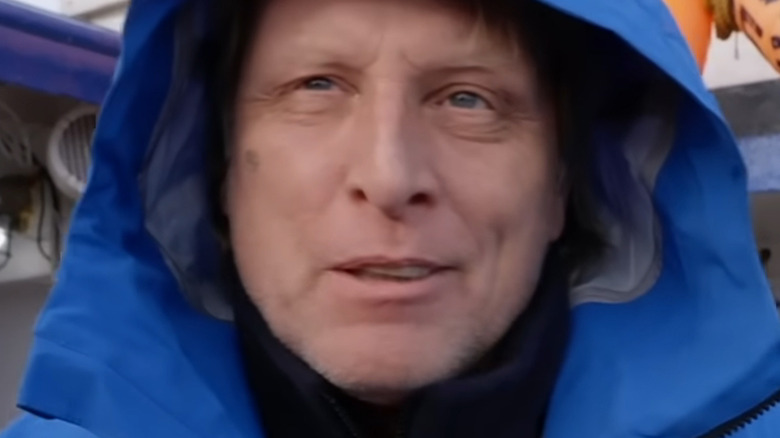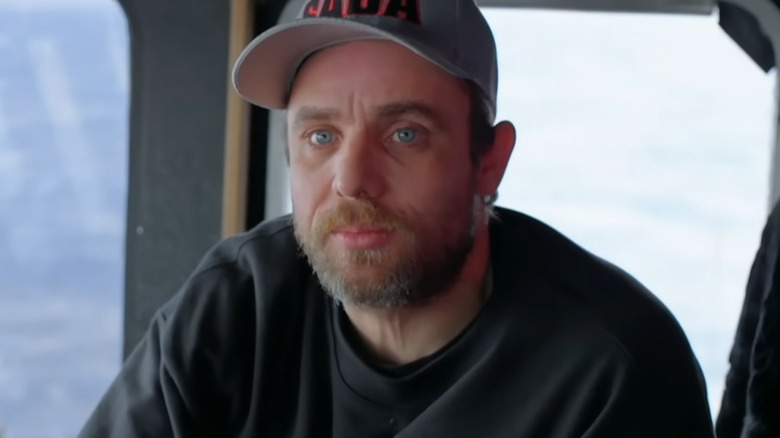Deadliest Catch Fans Raise Concern Over A Missing Safety Item
Discovery Channel reality show "Deadliest Catch" may be large in scale, but its scope has generally remained limited over the course of its considerable episode count. In effect, every episode of the mainline "Deadliest Catch" series revolves around crab fishing off the coast of Alaska. That said, the work on "Deadliest Catch" is hard and dangerous, so in spite of the limitations of its subject matter, its stars continue to drive storylines plenty suitable for TV.
Nevertheless, this approach has led to a markedly mixed reception among viewers. Its longevity, of course, is testament to a fanbase enthusiastic enough about televised crab fishing drama to sustain a run quickly approaching two decades in length. On the other hand, some fans have given up "Deadliest Catch" completely, describing its drama as increasingly fabricated — quite possibly a function of the fact that the show's premise may be stretched thin.
Similarly, viewers online have, on occasion, questioned elements of "Deadliest Catch" that may not detract from their enjoyment but simply appear confusing. Such was the case in a particular discussion about a potentially useful safety feature that seems to be missing entirely from the fishing operations featured throughout the series.
Why don't Deadliest Catch crew members attach GPS trackers to their survival suits?
On the official subreddit for discussing "Deadliest Catch," one user started a thread asking commenters why seemingly none of the show's deck hands wear GPS trackers, whether attached to a survival suit or around their necks in lieu of built-in GPS. Presumably, such a feature would help crews locate missing members if they were to fall overboard.
One response, by user ricky_lafleur, simply suggested that this missing safety feature is in line with a general tendency of "Deadliest Catch" crew members to flaunt safety best practices. User picklepowerPB, meanwhile, replied that this measure may be prohibitively expensive, and its utility potentially faulty. "From an emergency/danger standpoint it doesn't make a ton of sense, but from a budget one, it unfortunately does," they concluded about the lack of GPS trackers.
In 2009, Captain Keith Colburn told LAist that cost can indeed limit what technologies are available to ship crews. "It depends upon what you're willing to spend – we could really plunk down a lot of money to improve them even more, we're talking tens of thousands of dollars," he said. Nevertheless, a GPS tracker on Colburn's ship has, at least once, helped the Coast Guard rescue his crew, as he outlined in an interview with TV Shows Ace.
So, while individual GPS units could benefit deck hands in emergencies, it seems that their widespread implementation might just not be a priority.

